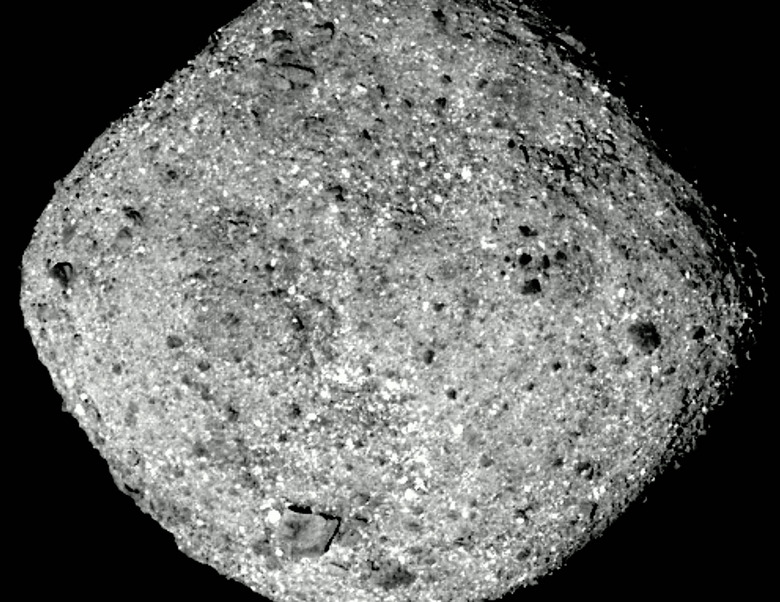Here Are The Four Spots Where NASA's Asteroid Probe Might Land
NASA's OSIRIS-REx spacecraft is currently hanging out around the asteroid known as Bennu. It's been there for months, taking photos and scanning the asteroid's surface to get a better idea of exactly what dangers the probe might face when it eventually touches down.
Now, after scrutinizing every square inch of the massive rock, NASA has narrowed down the possible landing sites to just four candidates. Each of the four spots is relatively inviting, with little in the way of large debris, but the science team still has some work to do before they can make the final call.
When the mission first launched, NASA believed things were going to progress faster than they have. When the probe arrived at Bennu it discovered that the asteroid is actually far more "messy" than anyone could have guessed, with debris scattered all over the surface. This has complicated the search for a suitable touchdown site.
The ultimate goal has always been to retrieve samples of the asteroid's material and return it to Earth. Selecting where to grab that sample from is difficult due to the requirements of the sample-collection system on the spacecraft. The material has to be smaller than an inch or the probe won't be able to grab it, but the four potential landing sites seem to offer suitable material.
"We knew that Bennu would surprise us, so we came prepared for whatever we might find," OSIRIS-REx principal investigator Dante Lauretta said in a statement. "As with any mission of exploration, dealing with the unknown requires flexibility, resources and ingenuity. The OSIRIS-REx team has demonstrated these essential traits for overcoming the unexpected throughout the Bennu encounter."
From here, the team will narrow down the selections to just two and then perform flybys of the locations to eventually select the sample collection site. That maneuver won't actually come until later next year, and the flight back to Earth will take another three years, so we won't actually get any asteroid bits from Bennu until late 2023 at the earliest.
